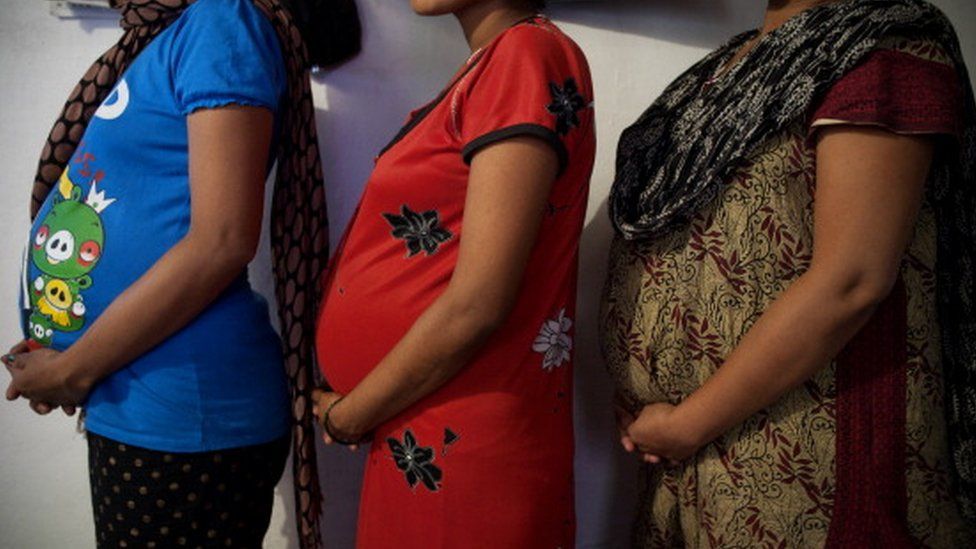ARTICLE AD BOX
By Geeta Pandey
BBC News, Delhi
 Image source, Getty Images
Image source, Getty Images
The Indian Supreme Court recently ruled that all women, including those not married and persons other than cis-gender women, had equal rights to abortion
Just weeks after the US Supreme Court passed a controversial order to ban or severely restrict the ability for pregnant women to get abortions, a similar case made headlines in India.
While the Roe v Wade ruling was described as "a huge step back for women's rights", Thursday's order by the Indian Supreme Court - in contrast - is being hailed as "historic" and "a big step forward" for women's rights.
The ruling - which said that all women, including those not married and persons other than cis-gender women, had equal rights to abortion - is indeed a progressive one in a country that's home to 73 million single women.
The order came on a petition brought to the top court in July by a 25-year-old single woman who had been in a consensual relationship and was 22 weeks pregnant.
What was the case about?
The woman said she wanted an abortion because her partner had refused to marry her at the last minute and that having a child out of wedlock would open her to "social stigma and harassment".
She also said that she could not afford to bring up a child because she did not have a job and did not come from an affluent family; and that she wasn't mentally prepared to raise a child.
The woman had knocked on the top court's doors after the Delhi High Court had rejected her plea for an abortion.
Abortions have been legal in India since 1971, but over the years, authorities have made strict rules for who can terminate a pregnancy and until what stage. This is because, driven by a traditional preference for sons, millions of female fetuses have been aborted, leading to a terribly skewed gender ratio in the country.
Image source, Getty Images
Image caption,Abortions have been legal in India since 1971, but until recently, they only focused on married women
After a spate of such cases, the government amended the Medical Termination of Pregnancy Act (MTP) last year to allow several categories of women to seek abortions between 20 and 24 weeks.
The list included rape survivors, minors, women with mental disabilities, women with fetuses that had major abnormalities and married women who were divorced or widowed during pregnancy.
So the high court denied the 25-year-old's request, saying she was not covered because she was unmarried and in a consensual relationship.
A few days later, when she appealed against the decision in the Supreme Court, she was allowed to undergo an abortion.
'Right to bodily autonomy'
But the judges then decided to take a look at some of the questions she had raised - that the law "violated her constitutional rights" and was "arbitrary and discriminatory for excluding unmarried women".
In Thursday's order, the bench, comprising Justices DY Chandrachud, AS Bopanna and JB Pardiwal, said a woman's marital status could not be grounds to deprive her of the right to abort an unwanted pregnancy.
The decision to carry the pregnancy to its full term or terminate, they said, was "firmly rooted" in a woman's rights to her bodily autonomy and to choose the course of her own life and that an unwanted pregnancy could adversely affecct her entire life "by interrupting her education, her career, or affecting her mental well-being".
The court also said that excluding single women could push them to seek unsafe abortions that kill an alarming number of women in India. According to the UN Population Fund, close to eight women die every day in the country from causes related to unsafe abortions.
Single women too have sex
The ruling has been hailed by women's rights activists across India and a reading of the judgement shows why it is significant on a number of counts.
Along with giving all women equal rights and the right to choose, the court acknowledged that single women too have sex - a fairly exceptional idea in a deeply patriarchal country where women have little sexual autonomy, premarital sex is frowned upon, and brides in some communities are even forced to undergo a humiliating "virginity test" on their wedding night to prove that they are "virtuous".
Image source, Getty Images
Image caption,According to the last Census in 2011, India is home to 73 million single women
The judges pointed out that law can no longer be interpreted based "on narrow patriarchal principles" about what constitutes "permissible sex" as the Indian society and family has significantly changed over the years and live-in relationships, pre-marital sex and gay sex can no longer be "seen with the lens of criminality".
"The law in modern times is shedding the notion that marriage is a precondition to the rights of individuals and that changing social mores must be borne in mind when interpreting a law. As society changes and evolves, so must our mores and conventions. A changed social context demands a readjustment of our laws," the order said.
'Recognising' martial rape
Another reason why the judgement has made headlines in India is because of what it says about marital rape.
An archaic colonial-era law that remains on the statue books in India says that sex "by a man with his wife" who is not a minor is not rape and the Supreme Court, at present, is hearing a petition to criminalise rape within marriage.
The judges clarified at the outset that their order was not really about the legality of marital rape as it was being heard by another bench - but they made it very clear that if a woman became pregnant "due to a husband's act of sexual assault or rape, she should not be compelled to give birth to and raise a child with a partner who inflicts mental and physical harm upon her".
"We would be remiss in not recognising that intimate partner violence is a reality and can take the form of rape. Sex and gender-based violence [in all its forms] within the context of the family has long formed a part of the lived experiences of scores of women," the order said.
The comments have won praise from feminists and women's activists, but they have also drawn the ire of men's rights activists, who say they could be used by unscrupulous women to harass their husbands.
And despite the judges saying that their order was only with regard to the abortion law, many are wondering if it is a precursor to the court finally criminalising marital rape.

 2 years ago
22
2 years ago
22








 English (US) ·
English (US) ·